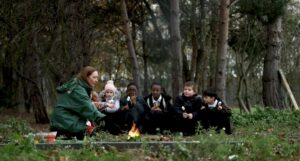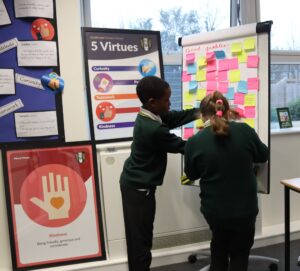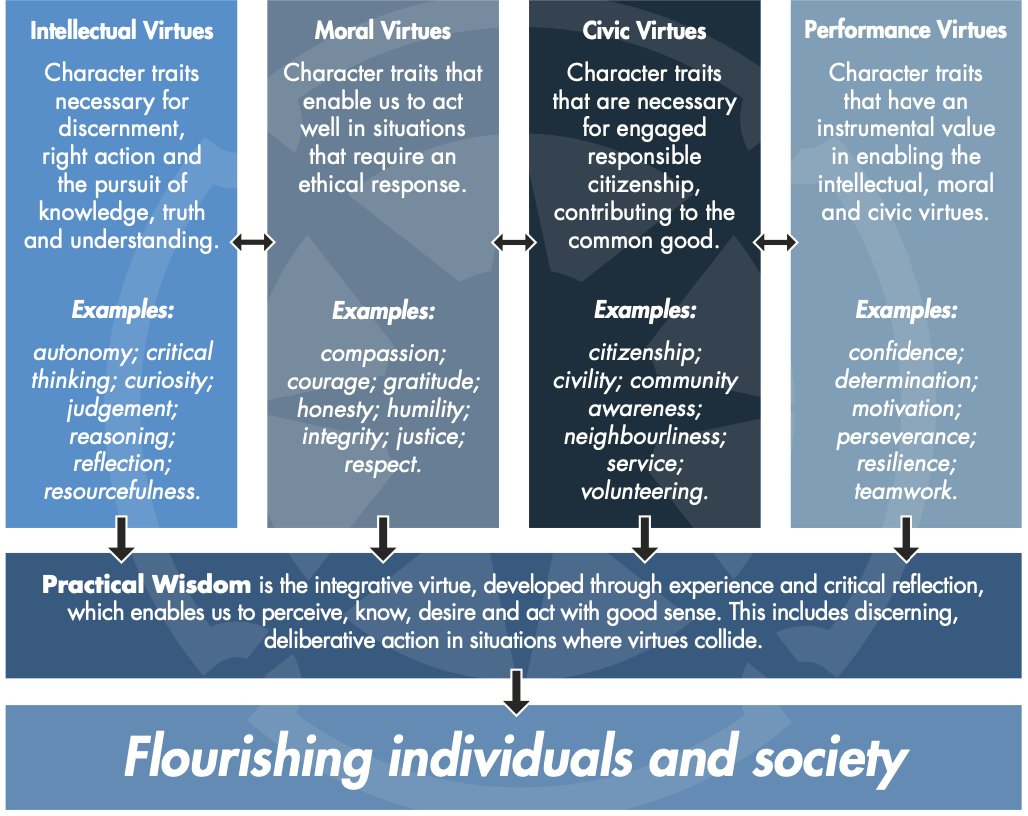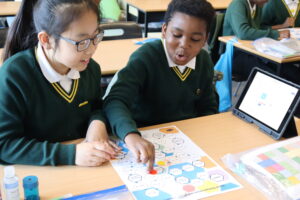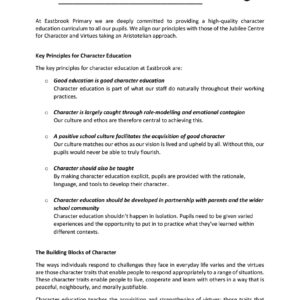We are deeply committed to providing a high-quality character education curriculum to all our pupils. We align our principles with those of the Jubilee Centre for Character and Virtues taking an Aristotelian approach.
Key Principles for Character Education
The key principles for character education at Eastbrook are:
- Good education is good character education
Character education is part of what our staff do naturally throughout their working practices. - Character is largely caught through role-modelling and emotional contagion
Our culture and ethos are therefore central to achieving this. - A positive school culture facilitates the acquisition of good character
Our culture matches our ethos as our vision is lived and upheld by all. Without this, our pupils would never be able to truly flourish. - Character should also be taught
By making character education explicit, pupils are provided with the rationale, language, and tools to develop their character. - Character education should be developed in partnership with parents and the wider school community
Character education shouldn’t happen in isolation. Pupils need to be given varied experiences and the opportunity to put in to practice what they’ve learned within different contexts.
The Building Blocks of Character
Character education teaches the acquisition and strengthening of virtues: those traits that sustain a well-rounded life and a thriving society. Human flourishing requires the acquisition and development of intellectual, moral and civic virtues, as well as performance virtues. No definitive list of virtues can be given, as the virtues will be relative to individual disposition, developmental stage and social circumstance. Although virtues can be divided up in to different categories, collectively they form a coherent, mutually supportive whole in a well-rounded life. Character education is all about their integration, guided by the overarching intellectual virtue of practical wisdom, or ‘good sense’, also known as phronesis.
We believe that character can be caught, taught and also sought.
As such, our curriculum is infused with opportunities for pupils to develop their character strengths and virtues. These are complimented by a weekly Character Assembly and four Virtues Days. Together, discrete and embedded learning gives our children the knowledge, language and moral exemplars to help them continue strengthening their character.
Further to this, we have identified ‘50 things to do at Eastbrook School before 11 ¾’ a set of enriched, character building experiences that are a commitment to our pupils and the community. These experiences are embedded in our curriculum as authentic outcomes to learning.
Character Education also informs our whole school approach to behaviour management. This is best described in the ‘Code of Conduct’ produced for pupils, parents and staff, and designed to ensure a shared understanding for all and a continuity of approach. The approach combines clearly defined rules and clearly defined character virtues to guide children in making good choices. The virtues we hold most dear and underpin our approach to behaviour are curiosity, perseverance, teamwork, gratitude and kindness.

